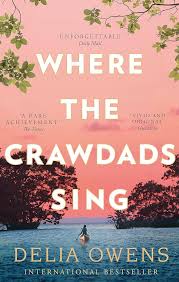7. The Fishing Season
byThe Fishing Season takes place in 1952, offering a detailed exploration of Kya’s life, her isolation, and her longing for connection. She is a young girl living in solitude, abandoned by her family, and left to survive in a dilapidated home in the marsh. The only moments of companionship she has come from brief encounters with her father, who is emotionally and physically abusive, and a small group of townspeople who view her with disdain due to her poverty and status as an outsider. Kya’s solitude is a central theme of this chapter, as she dreams of reconnecting with a boy named Tate, who had once shown her kindness and who reminds her of her brother, Jodie, whom she still longs for.
Kya’s isolation is compounded by her visit to the local market, where she interacts with Mrs. Singletary, the checkout lady, and experiences the sting of being judged by the townspeople. Their disapproval is evident as they call her “marsh trash,” a term that reflects their societal disdain for her. Kya’s dignity remains intact as she silently navigates the market, buying the essentials she needs to survive. She also goes to Mr. Lane’s filling station to get oil and gas for the boat, where she faces the same harsh treatment from the community. Despite these challenges, Kya’s quiet determination to keep going and make do with what little she has is clear, and it is this resilience that defines her character.
As the chapter progresses, Kya is left with mixed emotions when her father unexpectedly leaves for several days, abandoning her once again. In an attempt to establish some sense of normalcy, Kya prepares a meal in hopes of reconnecting with her father, only for him to return briefly and acknowledge her efforts. This rare moment of recognition from Pa marks a shift in their relationship, and Kya seizes the opportunity to ask him if she can join him on a fishing trip. Despite their history, Pa agrees, and the fishing outings they share serve as a form of silent bonding. These outings are moments of peace amidst their turbulent relationship, and they allow Kya to feel some semblance of connection to her father, even though it’s fleeting.
The fishing trips also become a sanctuary for Kya, where she finds solace in the natural world and in the work she is able to do with her father. Her connection to the marsh deepens as she collects feathers, nests, and other items that symbolize her intimate relationship with the environment around her. This connection to nature becomes her only constant in a world that is full of rejection and isolation. Although Kya begins to experience these small, quiet moments of bonding with Pa, her emotional connection to him remains fragile, and she continues to yearn for companionship and acceptance from others, especially Tate.
A significant moment in the chapter occurs when Pa, for the first time, gives Kya his knapsack to hold her collections of feathers and other items from the marsh. This act, small yet significant, symbolizes Pa’s recognition of Kya and her interests, something that he had previously ignored. It is a moment that marks a subtle shift in their relationship, providing Kya with a fleeting sense of acceptance and care. The chapter concludes with Kya reflecting on her relationship with her father, the deepening bond between them, and the realization that her connection to the marsh and her growing interactions with Tate provide her with the hope that, despite the isolation she feels, there is still potential for change and new relationships in her life.
This chapter highlights Kya’s struggle with loneliness and her search for connection, not only with her father but also with Tate, the boy she wishes to befriend. It presents the complexity of Kya’s emotional life, the difficulties of growing up isolated, and her deep connection to nature. The balance between her longing for human companionship and her need for solitude is explored, making this chapter a pivotal moment in Kya’s life, as she begins to navigate the complexities of her emotions and relationships while still maintaining a strong connection to the marsh.


